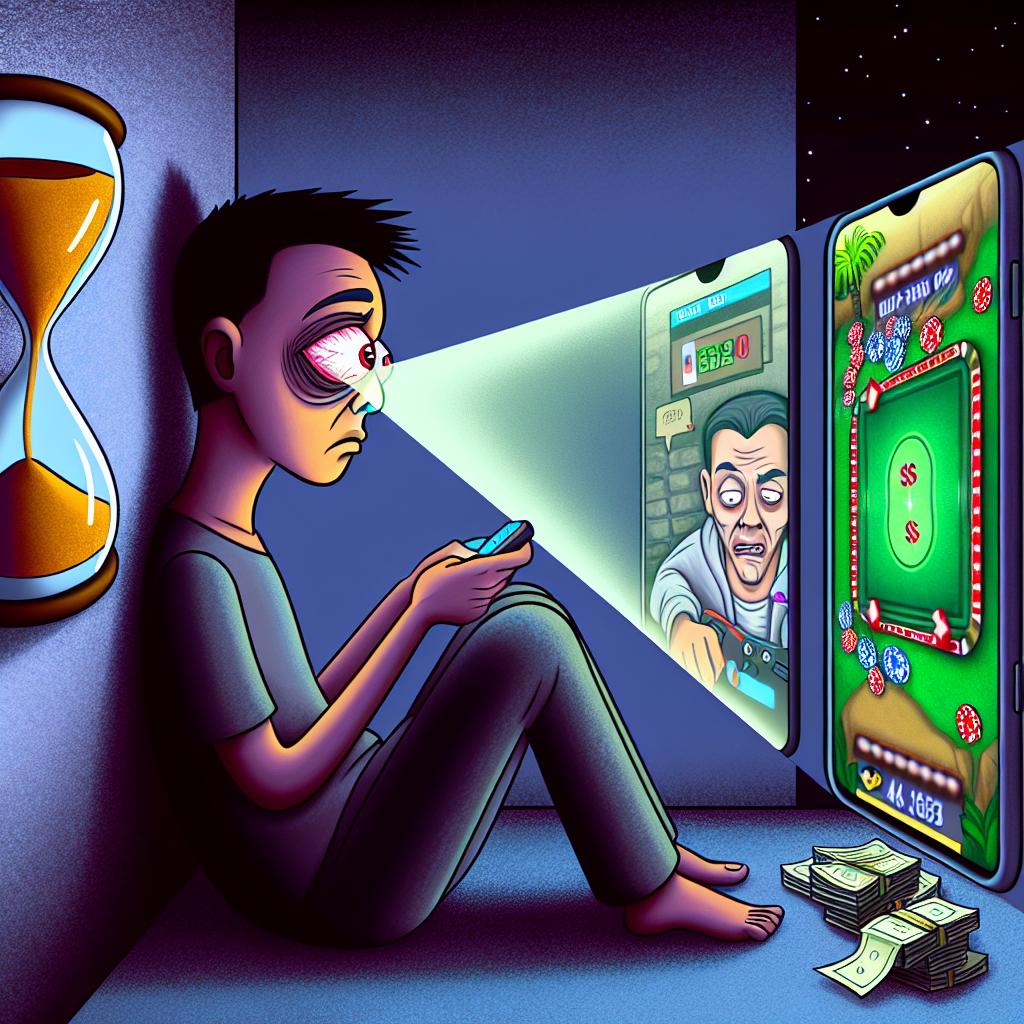Understanding Mobile Game Addiction
With the advent and rapid proliferation of smartphones, mobile game addiction has garnered substantial attention. Recognized as a subset of broader technology addiction, this issue is characterized by the excessive and compulsive use of mobile games, which can significantly impact an individual’s daily life. This phenomenon is prevalent across the globe and affects a wide array of demographic groups, ranging from children to adults.
Delving into the Mechanics Behind Mobile Game Addiction
Mobile games are meticulously crafted to be highly engaging and entertaining, often incorporating several elements that contribute to their addictive nature:
Reward Systems:
One of the core mechanisms utilized by mobile games to maintain user engagement is the implementation of reward systems. These systems are often based on psychological concepts such as variable-ratio scheduling, where rewards are doled out after an unpredictable number of responses. This unpredictability keeps users intrigued and immersed, as the prospect of earning rewards after each action can sustain engagement over extended periods.
Social Interaction:
Another significant factor contributing to mobile game addiction is the incorporation of social elements within these games. Many mobile games are designed to foster a sense of community, which can be particularly appealing to individuals seeking social connections. These games frequently enable communication and competition with other players, which can enhance the gaming experience and perpetuate sustained play.
Accessibility:
The unmatched convenience of mobile games also plays a crucial role in fostering addictive behavior. Being available at any time and in virtually any location, mobile games provide users with immediate access to entertainment. This easy accessibility can lead to excessive play, as individuals can indulge in gaming anywhere, further fueling addictive tendencies.
The Wide-Ranging Impact of Mobile Game Addiction
The ramifications of mobile game addiction are extensive, affecting various facets of a person’s life, including mental health, physical health, and social relationships:
Mental Health:
The mental health implications of excessive gaming are notable, with players potentially experiencing elevated levels of anxiety and depression. The commitments and social dynamics within games can induce significant stress, making it crucial to understand the mental toll constant gaming may exert.
Physical Health:
The physical health of individuals frequently engrossed in mobile gaming can also suffer. Prolonged gaming sessions are often associated with physical issues such as eye strain, poor posture, and sleep disturbances. Moreover, the sedentary lifestyle accompanying extended gaming can lead to other health concerns related to a lack of physical activity.
Social Life:
The social implications of mobile game addiction can be profound. The more time individuals devote to gaming, the less time they may have available for meaningful face-to-face interactions. This can result in social isolation and strain relationships with family and friends, emphasizing the potential social costs of unchecked gaming.
Approaches to Diagnosis and Intervention
Addressing mobile game addiction necessitates both accurate identification and effective intervention. The inclusion of “Gaming Disorder” in the International Classification of Diseases by the World Health Organization underscores the importance of medical and psychological interventions in tackling this issue.
Identification:
Recognizing the signs of addiction is the first step in addressing the problem. Typical indicators include a preoccupation with gaming, experiencing withdrawal symptoms when unable to play, unsuccessful attempts to reduce playtime, and persistent gaming despite adverse consequences. Early identification is critical to preventing further detriment to one’s mental and physical health.
Intervention:
Intervention strategies are essential in helping individuals overcome mobile game addiction. Professional assistance, including therapy focused on behavioral modification, can be highly beneficial. Cognitive-Behavioral Therapy (CBT) is frequently employed to reform gaming habits. Furthermore, involving family members in the intervention process can significantly enhance the effectiveness of these strategies, providing individuals with a supportive environment for recovery.
Resources for Further Information
For individuals seeking additional information about mobile game addiction and potential treatment options, a plethora of resources are available. Organizations such as the American Medical Association and the World Health Organization, along with various addiction support groups, offer valuable insights and tools to address this pressing issue. Recognizing the signs of addiction and seeking timely help are vital steps in mitigating the adverse effects of mobile game addiction.
Efforts to combat mobile game addiction must continue to evolve alongside advancements in mobile technology. By fostering awareness and offering robust support systems, the negative impacts of this addiction on individuals and society at large can be effectively managed. Understanding the complex dynamics that contribute to addiction and proactively seeking intervention are crucial in ensuring healthier engagement with mobile games.

